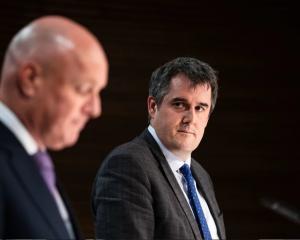Yesterday, Associate Health Minister Peter Dunne delivered the "knockout blow" to the distributers and producers of legal highs by asking them to prove the safety of party pill and synthetic cannabis products.
The new law was expected to come into force next year, and would complement the existing temporary class drug notices, which had led to 28 substances being banned and more than 50 products taken off the shelves.
Manufacturers might have to pay up to $2 million to take the synthetic products through a lengthy approval process.
Mr Dunne, who is also the leader of the United Future party, told the Otago Daily Times it was likely only "established players in the recreational industry" would go down this path, and singled out former party pill king Matt Bowden as one possibility.
"What they did in New Zealand has gone worldwide, so I don't have any doubts about their financial capacity to stump up with the costs."
Mr Dunne said he was "amused" by a report in a British newspaper which described Mr Bowden as a "consultant on the industry to the New Zealand Government".
Mr Dunne noted the work of Dunedin toxicologist, Dr Leo Schep, of the National Poisons Centre, and information sourced from police.
The National Poisons Centre had recorded a 75% fall in the number of emergency-call incidents relating to synthetic cannabis products since the temporary class drug notices came into effect.
"We are pleased that the Government responded in an appropriate manner," Dr Schep said.
Other countries were watching New Zealand's handling of the industry, Dr Shep and Mr Dunne said.
There was "a lot of interest" expressed to New Zealand officials from their counterparts in Britain and Australia, Mr Dunne said.
"They will be looking at what we do, and if we can make this regime work, and I don't see why we can't, then I think they will be following suit, as well."
Dunedin police tactical unit co-ordinator Sergeant Chris McLellan welcomed the decision.
He said synthetic cannabis products had proven to be a driver of crime such as aggravated robberies in the city.
"We are still interviewing offenders who have committed crime sprees as a result of either being addicted to the products or requiring cash to fund their addiction."
In the most recent case, a 17-year-old youth would appear in the Dunedin District Court next month in relation to 40 complaints of theft from vehicles.
Information from Dunedin offending was forwarded to the National Drug Intelligence Bureau, and police had worked with other agencies when dealing with legal highs, he said.
"For some reason, these products seem more prevalent in our area."
The number of stores selling legal highs in the city had decreased from about 35 to just four shops, "despite us raising our concerns with them and identifying the risk associated with the products".
The proposed legislation, which shifts the burden of proof on to the individual and is known as reverse onus, is expected to be approved by August next year.












